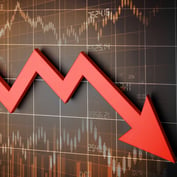Investors’ interest in sustainable investing continues to grow.
According to the most recent statistics from the Washington, D.C.-based U.S. SIF: The Forum for Sustainable and Responsible Investment, “After eliminating double-counting for assets involved in both strategies, the overall total of SRI assets was $6.57 trillion — a 76% increase over the $3.74 trillion identified in sustainable investing strategies at the outset of 2012. As a result, assets managed with SRI strategies accounted for nearly 18% of all professionally managed assets in the United States at the start of 2014.”
A persistent notion has been that investing with an SRI or ESG (environmental, social and corporate governance) focus involves a trade-off between social value and investment return. But a steady stream of research has debunked that idea. A 2015 meta-study from Oxford University and Arabesque partners examined the results of over 200 studies and reports found that: “80% of the reviewed studies demonstrate that prudent sustainability practices have a positive influence on investment performance.”
Also, research released in March 2015 from the Morgan Stanley Institute for Sustainable Investing showed similar results. “Investing in sustainability has usually met, and often exceeded, the performance of comparable traditional investments. This is on both an absolute and a risk-adjusted basis, across asset classes and over time, based on our review of U.S.-based mutual funds and separately managed accounts (SMAs),” according to the report.
In addition, “Sustainable equity mutual funds had equal or higher median returns and equal or lower volatility than traditional funds for 64% of the periods examined,” according to the Morgan Stanley report.
Changing Responsibility
Interest in ESG-investing is growing not only because it fits well with investors’ beliefs, but “because it’s becoming requisite in terms of being a fiduciary in the first part,” says Edward Kerschner, CFA, chief portfolio strategist with Columbia Threadneedle Investments in New York.








 October 24, 2016 at 08:00 PM
October 24, 2016 at 08:00 PM










